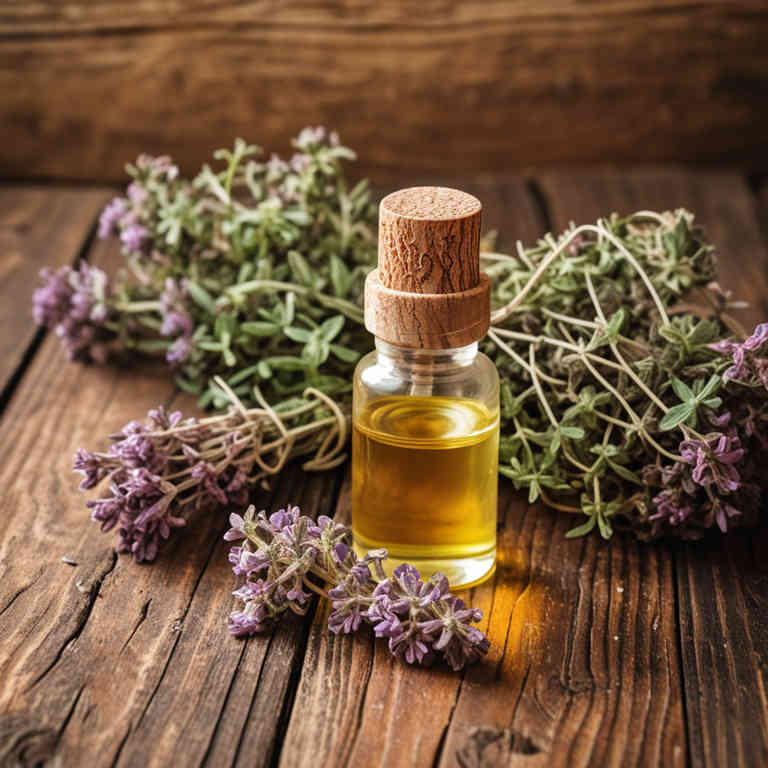Thymus serpyllum essential oil for medicinal use

Thymus serpyllum essential oil is a potent distillation of the flowering plant commonly known as wild thyme.
It is extracted through steam distillation from the leaves and flowers of the plant, which is native to Europe and parts of Asia. In herbalism, this essential oil is valued for its antimicrobial, antifungal, and antiviral properties. It is often used to support respiratory health, alleviate coughs, and treat skin infections.
Additionally, it may be used in aromatherapy to promote mental clarity and reduce stress.
Uses
Thymus serpyllum essential oil has been used to treat respiratory and digestive ailments for centuries.
Historically, it was valued in ancient Greek and Roman medicine for its antiseptic and expectorant properties. Traditional herbalists used it to alleviate coughs, bronchitis, and gastrointestinal discomfort. In modern times, it is widely recognized for its antimicrobial and anti-inflammatory effects, making it a popular choice in aromatherapy and natural medicine.
Its versatility continues to make it a key ingredient in both traditional and contemporary therapeutic applications.
Benefits
Thymus serpyllum essential oil has health benefits such as antimicrobial, anti-inflammatory, and antioxidant properties.
It is commonly used to support respiratory health by helping to relieve symptoms of coughs, colds, and bronchitis. This essential oil may also aid in reducing stress and anxiety due to its calming effects on the nervous system. Its ability to promote digestion and support the immune system makes it a valuable natural remedy.
Additionally, it has been traditionally used for its potential to treat skin infections and improve oral hygiene.
Constituents
Thymus serpyllum essential oil active constituents include thymol, carvacrol, linalool, and terpinene.
These compounds are known for their potent antimicrobial, antifungal, and antiviral properties. Thymol and carvacrol are the primary phenolic compounds responsible for the oil's strong antiseptic effects. Linalool contributes to its calming and mood-enhancing properties, making it beneficial for stress relief.
This essential oil is commonly used in aromatherapy and natural medicine for its ability to support respiratory health and immune function.
Preparation
To make Thymus serpyllum essential oil, begin by harvesting fresh Thymus serpyllum (wild thyme) leaves and flowers during the early morning when the essential oil content is highest.
Next, place the plant material in a glass jar and cover it completely with a high-quality carrier oil, such as fractionated coconut oil or jojoba oil. Let the mixture infuse in a cool, dark place for 4 to 6 weeks, shaking the jar gently every few days to ensure even extraction. After the infusion period, strain the oil through a fine mesh or cheesecloth to remove plant matter.
Store the essential oil in a dark glass bottle in a cool, dry place, and use it as needed for aromatherapy or topical applications.
Side Effects
Thymus serpyllum essential oil may lead to gastrointestinal discomfort, such as nausea or vomiting, in some individuals.
It can also cause skin irritation or allergic reactions when applied topically without proper dilution. Prolonged use or high doses may result in liver toxicity, particularly in people with pre-existing liver conditions. It is important to consult a healthcare professional before using this oil, especially during pregnancy or while taking medications.
Always perform a patch test and dilute the oil with a carrier before applying it to the skin.